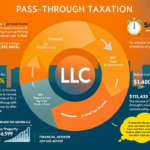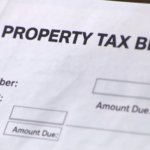Tax deductions for landlords can greatly reduce your total tax liability. In other words, you can lower the amount of money you owe to the federal government and get a discount on your taxes. Landlords can deduct some of the expenses associated with owning rental property. However, there are limitations. There are two types of tax deductions for landlords: direct and indirect deductions. Landlords can deduct expenses related to their rental property if they itemize their personal deductions. However, the amount you can deduct may be limited. This article discusses common rental property deductions to consider when filing landlord taxes.
Eligible Rental Property Deductions
Rental property deductions can be a confusing area of taxes, especially if you are not familiar with tax regulations. Many landlords already know they can deduct mortgage interest, repair and maintenance expenses, and depreciation, but there are other rental property tax deductions for landlords that might surprise you.
Here’s a list of eligible rental property deductions you might be able to claim:
- Membership fees for your rent collection platform or property management software
- Property taxes
- Insurance premiums
- Depreciation (more on this below)
- Utilities paid for by the landlord
- Advertising for tenants
- Home office expenses related to the rental property (if used for managing or advertising the rental property)
- Travel expenses for managing the rental property (including lodging)
Some deductions for landlords are restricted. If you use your home for business and rent out a portion of it, you can deduct a percentage of your expenses that correspond to the amount of space you use for business.
Rental property deductions are some of the most generous tax deductions available. According to the IRS, landlords may deduct any expense as long it is considered ordinary and necessary for the business. Landlords cannot deduct expenses that are deemed luxurious or extravagant.
Ineligible Deductions for Landlord Taxes
The IRS allows landlords to treat their rental property as a business. This means they can deduct all “ordinary and necessary” expenses incurred during the time they rent out the property, including any repairs or maintenance needed to keep the property in good condition.
Here are some common ineligible deductions for landlord taxes:
- Mortgage payments on a home you live in
- Mortgage payments on a second home (if you don’t rent it out)
- Improvements to your property that add value or extend its life
- Home improvements on rental properties
- Personal travel expenses while away from home
- Moving expenses
Personal expenses are not deductible. While operating expenses are deductible, personal expenses are not.
For example, you cannot deduct normal living expenses such as groceries or clothing because they do not relate to making money from the rental property. Additionally, costs incurred for commuting back and forth between your residence and the rental property are also non-deductible.
You may not deduct the value of your own labor when performing repairs, nor may you deduct the cost of materials when making repairs yourself.
Landlord Taxes and Depreciation
Generally speaking, any expense incurred directly for the purpose of earning rental income is usually deductible. For example, if you paid for a new roof or installed a fence around the property, both costs would likely be considered eligible deductions. While there are plenty of gray areas with taxes, this rule is fairly straightforward.
The main exception to this rule is when you’re depreciating your property. If you’re depreciating your property (i.e., claiming a deduction for a reduction in its value over time) you can’t deduct expenses related to wear and tear that occur naturally due to age or usage of the asset.
For example, if you have to paint your exterior walls after a few years because they’re starting to look worn out and faded, you cannot deduct that cost until it’s time to sell the property or otherwise stop renting it out.
As a landlord, you must depreciate vacation rentals. The IRS allows landlords to depreciate vacation rentals as nonresidential real estate over a 27.5-year recovery period in equal annual installments using the straight line method of depreciation.
This means that each year, the landlord may claim a deduction equal to 3.63 percent (1 / 27.5) of the cost or other basis of their vacation rental property.










